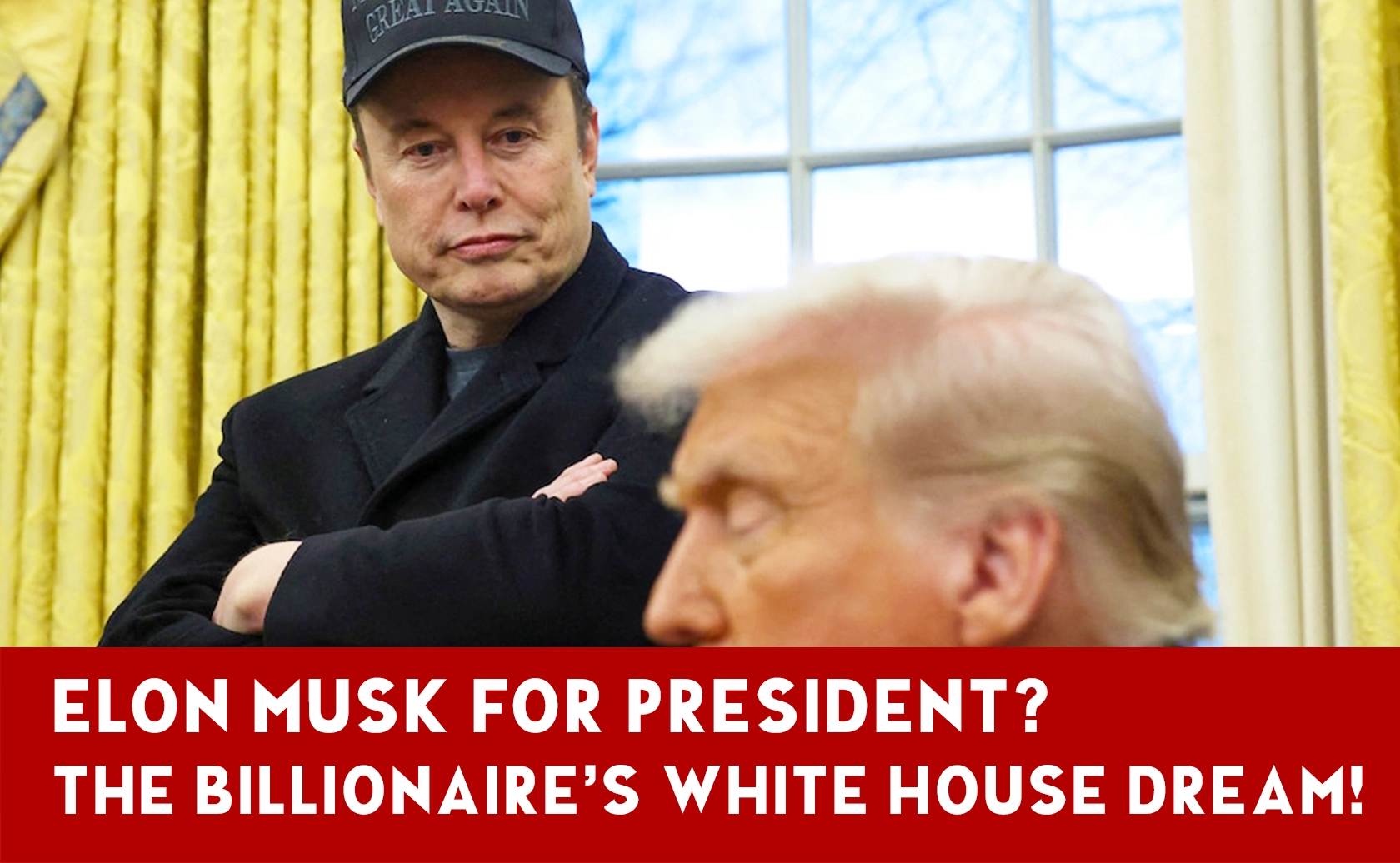Elon Musk and the White House, a relationship that has sparked growing intrigue and speculation. The enigmatic billionaire, known for his groundbreaking ventures in technology, space exploration, and social media, has also become an influential figure in U.S. politics. His increasing involvement in political discourse and close ties to key leaders, including the Trump administration, have led many to question whether Musk harbors ambitions to ascend to the highest office in the land, the presidency. This article explores that possibility, examining his political stance, constitutional barriers, and the broader implications of his influence on American governance and culture.
Table of Contents
ToggleThe Biography of Elon Musk: A Foundation for Speculation
Elon Musk was born on June 28, 1971, in Pretoria, South Africa. His early life was marked by a precocious talent for technology and entrepreneurship. At just 12 years old, Musk developed and sold a video game to a computer magazine8. His mother, Maye Musk, is Canadian-born, which facilitated Musk’s eventual emigration to Canada at the age of 17. He later moved to the United States to study at the University of Pennsylvania, where he earned degrees in physics and economics8.
Musk’s entrepreneurial journey began with ventures like Zip2 and PayPal before he founded SpaceX in 2002 and joined Tesla Motors in 2004. Over the years, he has expanded his portfolio to include Neuralink, The Boring Company, and OpenAI. In 2022, he acquired Twitter (now rebranded as X), further cementing his role as a cultural and technological icon8. As of 2025, Musk is 53 years old and holds citizenships in South Africa, Canada, and the United States8.
The Digital Dollar Debate: Is America Ready for the Future of Money?
Musk’s multifaceted career has positioned him as a global influencer whose opinions often transcend industry boundaries. His ventures have not only revolutionized sectors like electric vehicles and space exploration but have also made him a polarizing figure in public discourse. This duality of being both admired and critiqued sets the stage for questions about his potential political aspirations.
Constitutional Barriers: Can Elon Musk Run for President?
The U.S. Constitution imposes three primary requirements for presidential eligibility: a candidate must be a natural-born citizen of the United States, be at least 35 years old, and have resided in the country for at least 14 years2. While Musk meets the latter two criteria—he is over 35 years old and has lived in the U.S. for decades—he fails to meet the “natural-born citizen” requirement because he was born in South Africa.
This constitutional stipulation effectively disqualifies Musk from running for president unless there is a significant amendment to the Constitution. Amending the Constitution is an arduous process that requires either a two-thirds majority vote in both houses of Congress or a constitutional convention called by two-thirds of state legislatures, followed by ratification from three-fourths of the states. Given the polarized nature of contemporary American politics, such an amendment appears highly unlikely.
However, this legal barrier has not quelled public curiosity or speculation about Musk’s political ambitions. Some have even floated the idea that Musk could circumvent these restrictions by seeking other high-profile political roles or influencing governance through indirect means.
Elon Musk’s Political Affiliations and Influence
Musk’s political journey has been as eclectic as his business ventures. Initially a supporter of Democratic candidates and policies, Musk shifted his allegiance in recent years due to disagreements over issues like labor laws and social policies1. His alignment with Republican candidates became particularly evident during Donald Trump’s second presidential campaign in 2024 when Musk contributed $288 million to Trump and other Republican candidates1.
Musk’s role in Trump’s administration as head of the newly established Department of Government Efficiency (DOGE) has further solidified his political influence1. This department aims to streamline federal operations but has faced criticism for its aggressive measures, including dismantling agencies and issuing ultimatums to civil servants1. Critics argue that Musk’s approach mirrors his corporate strategies disruptive yet effective and raises ethical questions about the intersection of private enterprise and public governance.
Despite these controversies, Musk’s influence within Trump’s inner circle is undeniable. His presence at key events and policy discussions underscores his growing role as a political power broker3. While he may not be eligible to run for president, his ability to shape policy from behind the scenes makes him a formidable figure in American politics.
Public Perception: The Billionaire as a Political Icon
Public opinion on Elon Musk is deeply divided. To some, he represents innovation and progress a modern-day Edison or Tesla whose ideas could solve humanity’s most pressing challenges. To others, he epitomizes unchecked corporate power and privilege.
Musk’s foray into politics has amplified these perceptions. His critics point to ethical concerns arising from his dual roles as a government advisor and CEO of companies that benefit from federal contracts3. For instance, President Trump’s public endorsement of Tesla vehicles raised eyebrows about potential conflicts of interest3.
On social media platforms like X (formerly Twitter), where Musk frequently shares his views, debates about his political ambitions are rampant. A recent petition in Canada calling for Musk to be stripped of his Canadian citizenship garnered over 230,000 signatures, reflecting growing discontent among some segments of the public7. This petition criticized Musk’s alignment with Trump’s policies as detrimental to Canadian interests7.
Conversely, Musk enjoys a cult-like following among tech enthusiasts and libertarians who admire his vision for a decentralized future powered by renewable energy and space colonization. This dichotomy makes him a polarizing yet undeniably influential figure.
The Hypothetical Presidency: Imagining “President Elon Musk”
While constitutional barriers make it improbable for Elon Musk to ever hold the office of President of the United States, it is worth exploring what such a presidency might look like. Given his track record in business and governance through DOGE, one could expect a focus on efficiency, technological innovation, and disruptive reforms.
A hypothetical “President Musk” might prioritize renewable energy initiatives, space exploration programs akin to SpaceX’s Mars colonization plans, and advancements in artificial intelligence through companies like Neuralink. However, such an administration would likely face significant challenges in navigating traditional political structures that prioritize consensus over disruption.
Moreover, Musk’s controversial statements on social programs like Social Security and Medicare suggest that his policies could alienate large segments of the population6. Balancing visionary goals with pragmatic governance would be a daunting task for any leader but especially so for someone as polarizing as Musk.
Conclusion: Does Elon Musk Dream of Being President?
The question of whether Elon Musk dreams of being president is both speculative and symbolic. While constitutional barriers make it unlikely that he will ever run for or hold this office, his actions suggest an interest in shaping governance on a grand scale. Through his role in Trump’s administration and his broader influence on American politics and culture, Musk has already positioned himself as a key player in shaping the future.
Ultimately, whether or not he dreams of being president may be less important than recognizing the profound impact he already wields. As technology continues to intersect with governance in unprecedented ways, figures like Elon Musk will likely play increasingly prominent roles in defining what leadership looks like in the 21st century.




